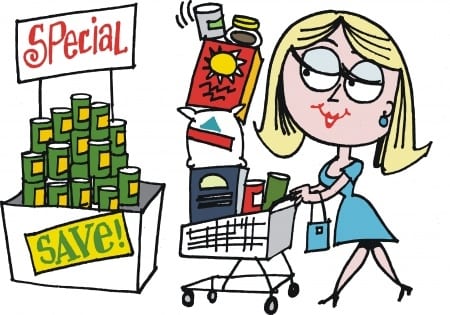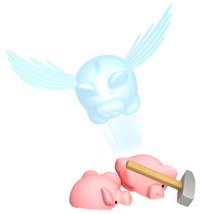
Does this ever happen to you? You go to the grocery store to buy a few recipe ingredients. After walking the aisles, you find yourself at the checkout with 2 full bags of groceries and a receipt for $60-$90.
Here are some tips to prevent grocery store overspending. The most important (and easiest) fixes are on top.
1. Use cash! This is the most important and the easiest rule to follow. In the example above, if you’d only brought $10 in cash to the store, you would have walked out with just the butter, eggs and cinnamon you needed for your baking project. You cannot spend more cash than you bring with you – as long as you leave your credit and debit cards at home. (I do this myself)
2. Don’t shop when you’re hungry! This is also an easy rule to follow. If you shop hungry, your body will tell you that everything you see is delicious and that you must buy it right away. In fact, you’ll think it’s a good idea to get 2 or 3 packages of all kinds of foods you’ll regret buying later.
3. Compare prices in store. As long as you’re standing there, it’s not too hard to try to choose the best price on a can of tuna or package of grated cheese. Store brands are usually the best deal, but if they want you to buy 2 to get the sales price, the brand name could be a better deal.
4. Plan your meals and shop from your list. This is a little harder because it means you have to plan before going to the store. Once you have your meal plan, check your cupboards and fridge to see if you already have any of the recipe ingredients. This prevents you from buying something you already have at home.
5. Rewards cards. You have to plan to get the best use out of them, but when you do, you can save substantial cash. They give you discounts and coupons, but you won’t get the same discounts on the same items every week. You’ll need to be on top of what’s in your cupboards, be careful to buy only the items you’ll actually use, and sometimes you’ll have to wait on a purchase until the discount cycles around again.
Make your trip to the grocery store less costly the next time you shop. What do you do to save money in the grocery store? Tell us in the comments below.

